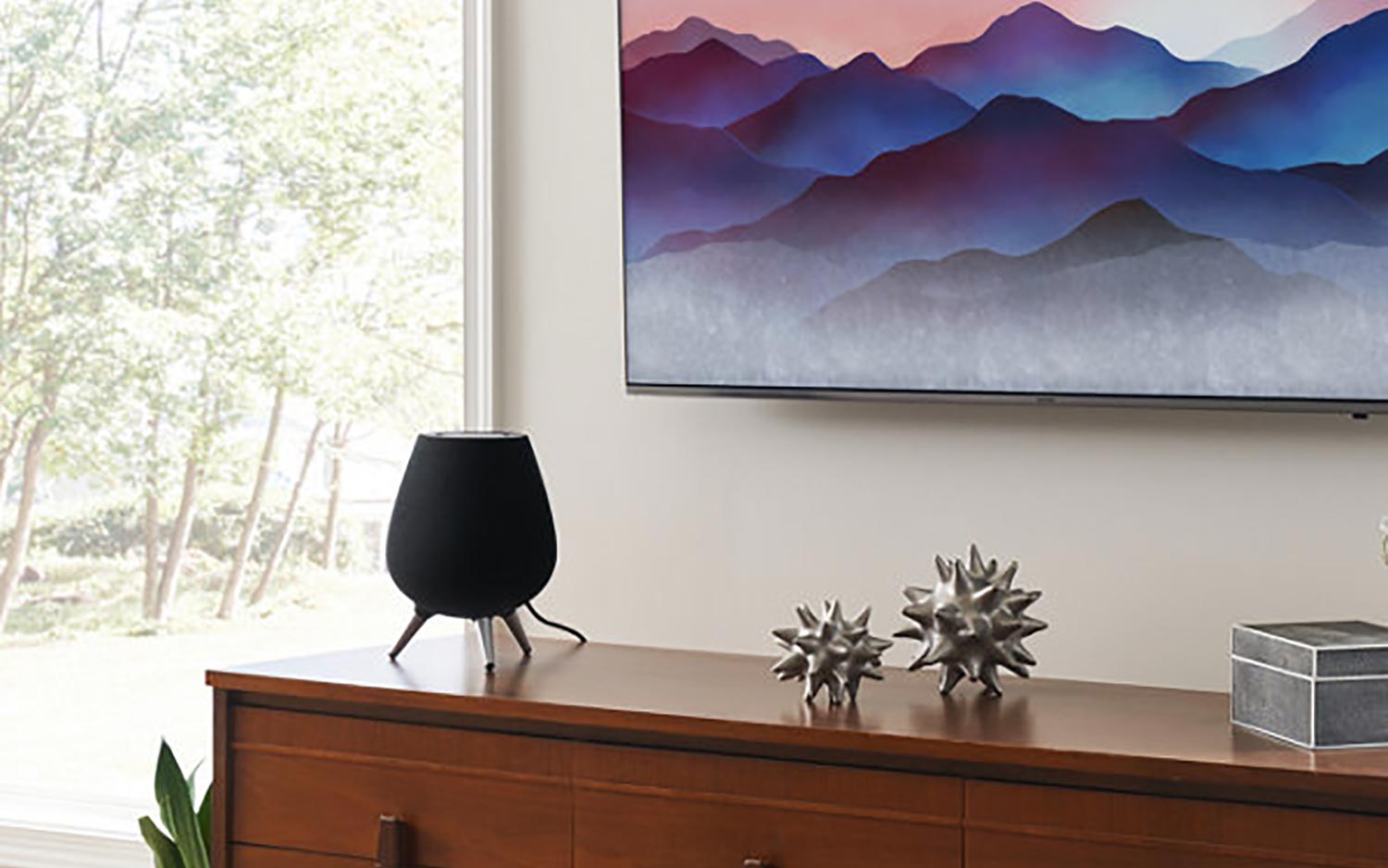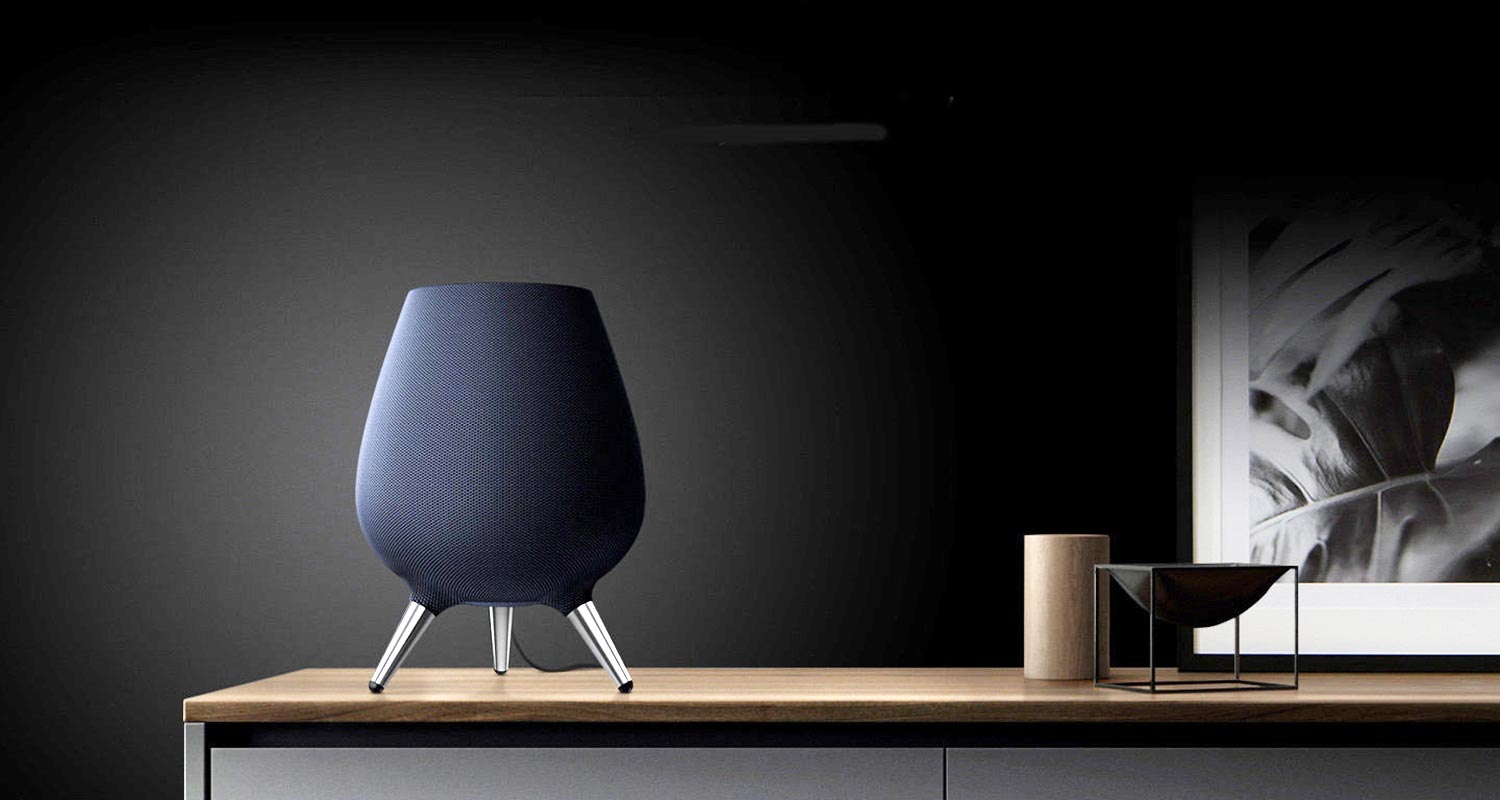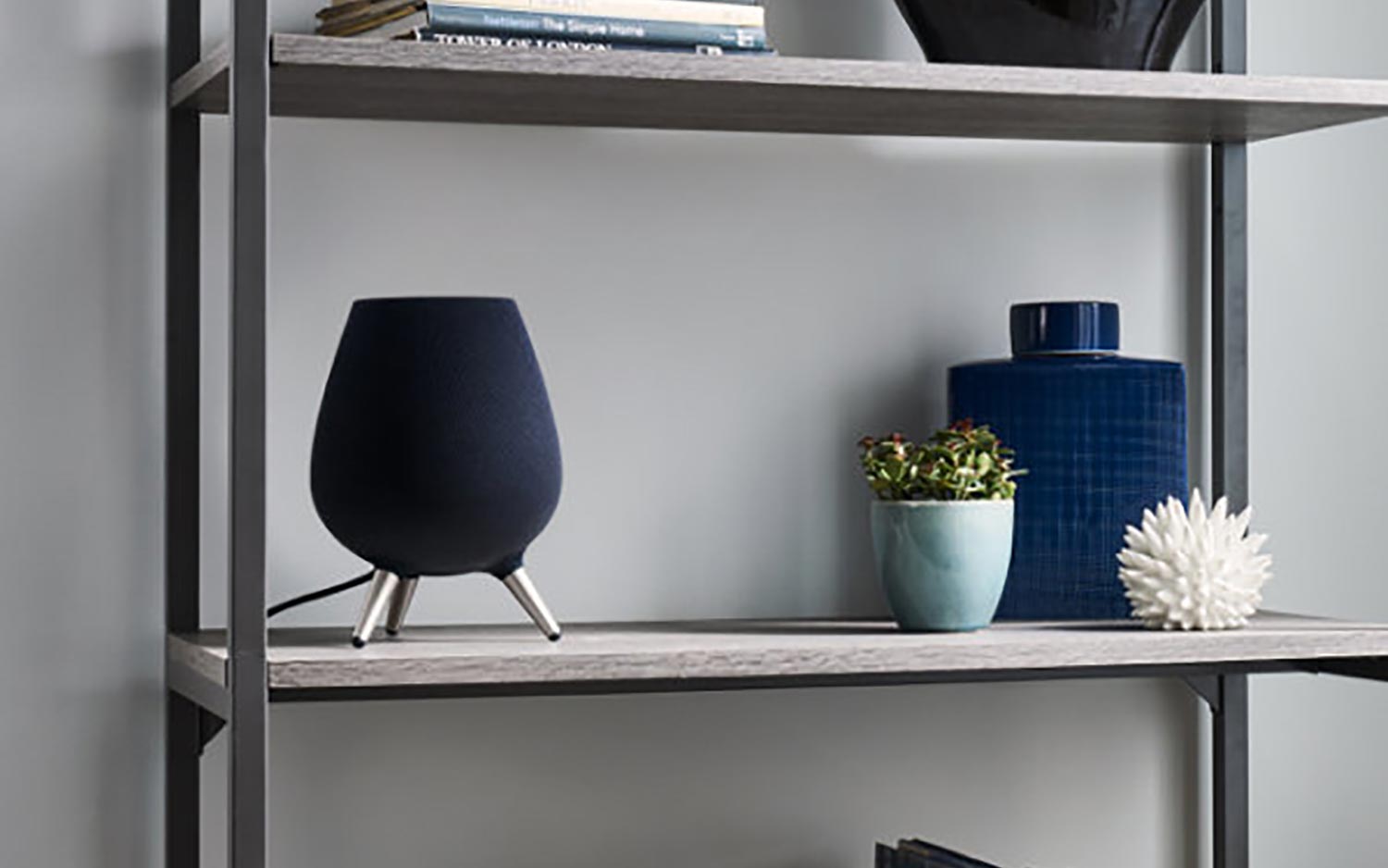Analysts Are Already Worried About the Samsung Galaxy Home
Here's what the Samsung Galaxy Home needs to succeed against Amazon, Apple and Google.
While rolling out its new Galaxy Note 9 smartphone yesterday (Aug. 9), Samsung also teased a new smart-home speaker — the first with Bixby, the company's homegrown voice assistant. But aside from revealing a few features, such as the number of microphones it has, Samsung is reserving the details of its Galaxy Home speaker until the company's developer conference in November.

If it seems like Samsung is playing catchup here, that's because it is. As the company was previewing the Galaxy Home speaker this week, similar products from Amazon, Google and Apple are already on retail shelves — and have been for some time.
"Samsung is, understandably, concerned that it is missing out on a product category that combines consumer electronics, AI and home automation — all areas where Samsung is making major investments," said Avi Greengart, research director for consumer platforms and devices at GlobalData.
We've pitted Alexa, Google Assistant and Siri against one another on a few occasions, and below, we've listed some of the things we look for when evaluating those speakers. When the Galaxy Home finally arrives, it'd better have these features if it wants to be the next Amazon Echo rather than the next Harmon Kardon Invoke.
Great audio quality
Based on its design, I would safely assume that the Galaxy Home is going to be sold as a premium speaker, closer in price to the $349 Apple HomePod than to the $99 Amazon Echo. To that end, it'd better sound at least as good as the $199 Sonos One. Still, making it a higher-priced device will limit its adoption.

"Most consumers use smart speakers to check weather and news or ask a question," said Blake Kozak, principal analyst of smart home and security technology for IHS Markit. "Although listening to music is also a major use case, consumers new to the segment that are not audiophiles will likely be satisfied with a low-cost Echo Dot or Google Mini."
Sign up to get the BEST of Tom's Guide direct to your inbox.
Get instant access to breaking news, the hottest reviews, great deals and helpful tips.
Entertainment chops
Based on Samsung's demonstration this week, which featured dozens of speakers playing in concert, whole-home audio is probably included. We also know that Spotify is partnering with Samsung so that you can control that streaming service using your voice. But you should also be able to call up podcasts, control your TV and more using nothing but your voice.
Smart-home hub
Samsung wisely integrated its SmartThings hub into the Galaxy Home. While I've found that the SmartThings hub is more for power users, it's a nice benefit for those who want to integrate all manner of smart-home devices. While both the Amazon Echo Plus and the Apple HomePod also act as smart-home hubs, Amazon's Alexa Routines--automated smart home functions--are much more basic than Samsung’s, and Apple's HomeKit works with far fewer devices.
"Samsung will have a tough time competing with Amazon or Google on AI capabilities, and Apple and Sonos are already jockeying for position as the premium audio choice." Avi Greengart, GlobalData
"SmartThings has been one of the most successful DIY hubs for the smart home, representing a large portion of the nearly 6.5 million installed base in the Americas region in 2017," Kozak said. "With Samsung sunsetting the original SmartThings app for a more integrated Samsung app which includes the whole Samsung universe of connected products, Samsung could have a unique and proprietary advantage for its ecosystem.”
General intelligence
I haven't used Bixby all that much, but it'd better be able to answer any sort of random trivia question I throw at it. Who played third base for Pittsburgh in 1960? What's Harry Truman's middle name? When will Halley's Comet next appear?
Personalization
Samsung hinted at this, too, but Bixby needs to know not only who I am but also if I'll need to bring an umbrella to work, how long my commute will be and if I have any appointments for the day. Alexa, Google Assistant and Siri can do all of these things, to varying degrees.
Phone calls and messaging
"Bixby, call Mom." It better be that simple to make a call using the Galaxy Home. I should also be able to call up any business, too. This appeared to be a feature of Bixby on the Note 9; a presenter at Samsung's Unpacked event looked up a restaurant and made a reservation using the assistant.
Recipes
A feature touted by all smart speakers is the ability to look up recipes and then provide step-by-step instructions. Hopefully, Bixby will prove to be as good of a sous chef as Google Assistant.
Timers
This may seem like a basic feature, but it's one that even Apple's HomePod failed at when it launched. You should be able to not only set multiple timers with the Galaxy Home but name them, too.
Bixby's role in the home
Beyond these features, Bixby won't succeed until Samsung more clearly defines the role it wants its voice assistant to play in the home. The company seems to be taking a similar approach with Bixby as Apple is with Siri: putting it on smartphones and a few premium products (such as the Apple TV and Samsung smart TVs).

Both Google and Amazon have taken a different tack, allowing third parties to integrate Google Assistant and Alexa into not just speakers, but laptops, desktops, thermostats, light switches and even smoke detectors, so their assistants are ubiquitous throughout your home. The latter approach is the wiser choice; to make consumers dependent on something, you have to make it effortless for them to use. If I have to walk into another room to ask Bixby the weather, it's no longer as convenient as opening an app on my phone.
Outlook
Even if the Samsung Galaxy Home gets all these features and more, it still faces a tough task in breaking into a category dominated by Amazon and Google.
"Although listening to music is a major use case, consumers new to the segment that are not audiophiles will likely be satisfied with a low-cost Echo Dot or Google Mini." — Blake Kozak, IHS Markit
"As a result of a late start, it will be difficult for Samsung to compete with Amazon and Google in the short term," Kozak said. "Globally, Amazon and Google will have a combined smart speaker installed base that exceeds 75 million in 2018, which puts Samsung Bixby in a difficult position to win market share."
To succeed, the Galaxy Home and Bixby will need to do at least one thing that none of the other smart speakers can. At the moment, the built-in SmartThings hub looks to be it, but that's not enough to get people excited.
"Samsung will have a tough time competing with Amazon or Google on AI capabilities; consumers do not fully understand the value proposition of SmartThings, and Apple and Sonos are already jockeying for position as the premium audio choice," Greengart said.
The Galaxy Home is in dire need of a killer feature that will separate it from other smart speakers. I'm just not sure what that is yet.

Michael A. Prospero is the U.S. Editor-in-Chief for Tom’s Guide. He oversees all evergreen content and oversees the Homes, Smart Home, and Fitness/Wearables categories for the site. In his spare time, he also tests out the latest drones, electric scooters, and smart home gadgets, such as video doorbells. Before his tenure at Tom's Guide, he was the Reviews Editor for Laptop Magazine, a reporter at Fast Company, the Times of Trenton, and, many eons back, an intern at George magazine. He received his undergraduate degree from Boston College, where he worked on the campus newspaper The Heights, and then attended the Columbia University school of Journalism. When he’s not testing out the latest running watch, electric scooter, or skiing or training for a marathon, he’s probably using the latest sous vide machine, smoker, or pizza oven, to the delight — or chagrin — of his family.
